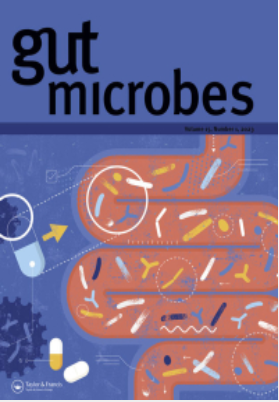The role of the early-life gut microbiome in childhood asthma.
IF 12.2
1区 医学
Q1 GASTROENTEROLOGY & HEPATOLOGY
引用次数: 0
Abstract
Asthma is a chronic disease affecting millions of children worldwide, and in severe cases requires hospitalization. The etiology of asthma is multifactorial, caused by both genetic and environmental factors. In recent years, the role of the early-life gut microbiome in relation to asthma has become apparent, supported by an increasing number of population studies, in vivo research, and intervention trials. Numerous early-life factors, which for decades have been associated with the risk of developing childhood asthma, are now being linked to the disease through alterations of the gut microbiome. These factors include cesarean birth, antibiotic use, breastfeeding, and having siblings or pets, among others. Association studies have highlighted several specific microbes that are altered in children developing asthma, but these can vary between studies and disease phenotype. This demonstrates the importance of the gut microbial ecosystem in asthma, and the necessity of well-designed studies to validate the underlying mechanisms and guide future clinical applications. In this review, we examine the current literature on the role of the gut microbiome in childhood asthma and identify research gaps to allow for future microbial-focused therapeutic applications in asthma.求助全文
约1分钟内获得全文
求助全文
来源期刊

Gut Microbes
Medicine-Microbiology (medical)
CiteScore
18.20
自引率
3.30%
发文量
196
审稿时长
10 weeks
期刊介绍:
The intestinal microbiota plays a crucial role in human physiology, influencing various aspects of health and disease such as nutrition, obesity, brain function, allergic responses, immunity, inflammatory bowel disease, irritable bowel syndrome, cancer development, cardiac disease, liver disease, and more.
Gut Microbes serves as a platform for showcasing and discussing state-of-the-art research related to the microorganisms present in the intestine. The journal emphasizes mechanistic and cause-and-effect studies. Additionally, it has a counterpart, Gut Microbes Reports, which places a greater focus on emerging topics and comparative and incremental studies.
 求助内容:
求助内容: 应助结果提醒方式:
应助结果提醒方式:


